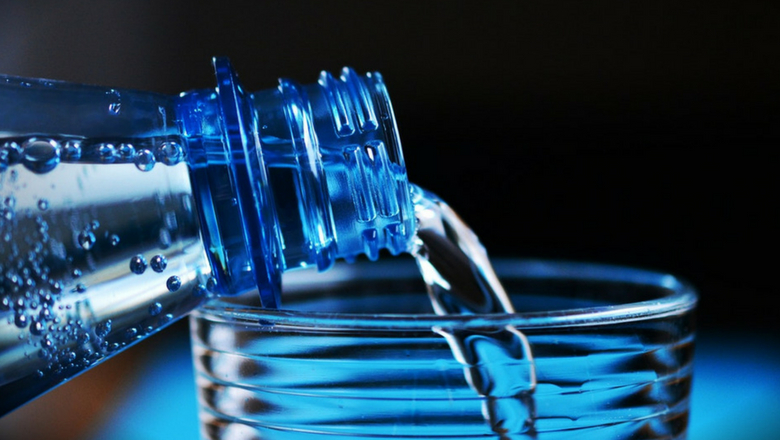Provided by Pathways to Family Wellness magazine, Issue #21 published by ICPA, Inc. -Kelly Hayford, C.N.C., Pathways Contributor
Frightening Fact: An estimated 25-40% of bottled water is merely tap water.
With widespread reports of dangerous pathogens, toxic fluoride and chlorine—and yes, even pharmaceutical drugs!—coming out in our tap water, it’s not surprising that bottled water is the fastest growing segment of the overall beverage industry. Sales have tripled in the last decade and now exceed over $15 billion per year. Fifty-four percent of all Americans drink bottled water. But is this often high-priced commodity really the best choice when it comes to fulfilling your daily H2O quota? Or have over half the population fallen prey to yet another marketing extravaganza? Unfortunately, there’s not a simple answer. There are multiple factors to consider.
First, there are a few basic categories or types of bottled water available on the market today. From mineral to artesian water, each usually has one or another purported health benefits associated with it. Whether or not the health benefits associated with these types of water are valid or not is the topic of much debate among health professionals, with no definitive answers.
Regardless of any potential health benefits that may be associated with any given type of bottled water, the most important thing for people to know is that all brands are not created equal. Although there are pure, high-quality bottled waters available, deciphering the good guys from the bad can be tricky. Due to substandard and challenging government regulations, what it says on the label outside the bottle is not always what’s inside.
For example, a study done by the Natural Resources Defense Council (NRDC) found that an estimated 25% of bottled water tested is really just tap water in a bottle! Other sources claim as much as 40%. Check the label for the words “municipal source” on the ingredients label to know. In another example, 500,000 liters of Coca-Cola’s Dasani brand water was recalled in Britain due to high levels of bromate, a carcinogenic chemical. Pathogens can also be a problem as the NDRC further reports that one-fifth of the bottled waters tested exceeded unenforceable state or industry bacteria guidelines.
Other concerns voiced by those in opposition to this popular industry include: the 1.5 million tons of plastic used for bottling and the toxic chemicals released into the environment during this process; possible consumption of toxic chemicals leached from the plastic bottles; a tremendous amount of plastic added to landfills; and a tremendous amount of resources expended in the overall production, packaging and transportation of bottled water products. All things considered, I recommend water filtered at the source either through a quality in-home filtration system or one available at most natural foods stores, as the safest and usually most economical overall drinking water for daily consumption.
Fruit & vitamin waters: One of the growing trends in bottled water is fruit- and vitamin-enhanced waters. They sound like an easy way to pack in more nutrients, but in actuality don’t provide any true health benefits. The quality of these products is based on the quality of the water and the substances added.
People are better off with a natural mineral water than drinking added synthetic nutrients—not to mention sweeteners and artificial colorings which are also frequently added to these kinds of water. Children especially should avoid artificial colorings as they have been linked to ADD/ADHD and other issues.
Recommended drinking water for daily use: As mentioned, the best choice is a quality in-home filtration system. You can also purchase countertop water filters. Do your research before investing as there are a variety of choices and considerations to take into account. Be sure to look for those that take out as many contaminants as possible, including fluoride.
You can also have pure water delivered to your doorstep. Once again, be sure to research the quality of water available through water delivery companies in your area, as they can vary greatly. The next best choice is to fill your own water jugs at a water dispenser kiosk that uses a reverse osmosis filtration system. It’s the purest water you can get at the most economical price.
For super hydration & special needs: My favorite bottled water is Penta water. Special processing gives this water 16x faster hydration than regular water. Not surprisingly, it’s the preferred water for many Olympic athletes, is a must for those with kidney stones, those undergoing chemotherapy treatment, and more. It also comes in bottles made of safe plastic!
For a refreshing treat: Instead of flavored waters that contain sweeteners or other questionable ingredients, I recommend Metromint water—my other favorite water. The original flavors, peppermint and spearmint, are great for digestion, hot summer days, and even menopausal hot flashes! The new lemon and orange flavors are refreshing and healthful as well. Both Metromint and Penta water are available at most natural foods stores.

